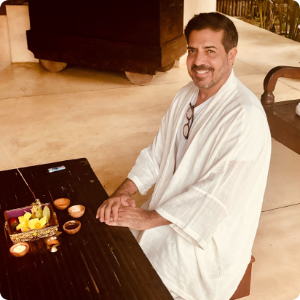Differentiation, Not Separation – Navigating Conflict with Presence
Sep 21, 2025
Conflict is inevitable in any relationship. Romantic partners, families, friendships, colleagues — wherever people come together, tension will eventually arise. What matters is not whether conflict appears, but how we respond to it.
Many of us default to one of two extremes: we either retreat into our individuality (“I don’t need this, I’m out”) or we collapse into the other person’s emotions (“I’ll just give in to keep the peace”). Both options limit freedom and erode intimacy.
There is a third path — one that creates more freedom, not less. It’s called differentiation.
The Pitfalls of Separation and Fusion
-
Individuation taken too far. Many of us prize our individuality, our independence. That strength can become a liability in conflict, when our instinct is to pull away, shut down, or flee the situation. Retreat may preserve our autonomy, but it creates separation — and separation is the enemy of love.
-
Emotional fusion. On the other end, we sometimes collapse into another person’s emotions, absorbing their anger, sadness, or frustration until we lose our own center. This might smooth things over temporarily, but it strips us of choice.
Both extremes are reactions rooted in fear: the fear of losing ourselves or the fear of confrontation. Neither option fosters connection.
Differentiation: The Middle Way
Differentiation is the ability to stand close to another person in conflict without retreating and without collapsing.
It’s the capacity to remain present, rooted in who we are, while staying open to another’s perspective.
In practice, this means:
-
Holding onto your sense of self without defensiveness.
-
Listening without rushing to prove or persuade.
-
Staying physically and emotionally present, even when tension rises.
This is not easy. But it is profoundly freeing. Differentiation offers us choice: the choice to stay, to engage, to consider, to negotiate, or even to pause without abandoning the relationship.
Treating the Relationship as a “Third Entity”
One powerful reframe is to think of the relationship itself as something separate from you and the other person — a third entity.
Instead of “me vs. you,” imagine both of you tending to this shared being called “our relationship.” You can then ask questions like:
-
What does our relationship need right now?
-
How can we nurture this third entity, even in conflict?
This shift reduces defensiveness and opens space for collaboration. It also reminds us that conflict isn’t about winning or losing; it’s about caring for something bigger than either of us.
Practical Tools for Differentiation
-
Pause, but don’t flee. It’s fine to ask for space — but communicate it clearly. “I need 20 minutes to gather my thoughts, and then I’ll come back so we can continue.”
-
Name the relationship. Literally say, “What does our relationship need here?” It can defuse blame and redirect attention.
-
Practice presence. Use mindfulness tools — a few breaths, a body scan — to ground yourself before responding.
-
Stay curious. Ask questions rather than rushing to defend.
Closing
Conflict doesn’t have to mean separation. When we practice differentiation, we transform moments of tension into opportunities for growth.
The middle path — standing present without collapsing, engaged without retreating — is where love expands.


